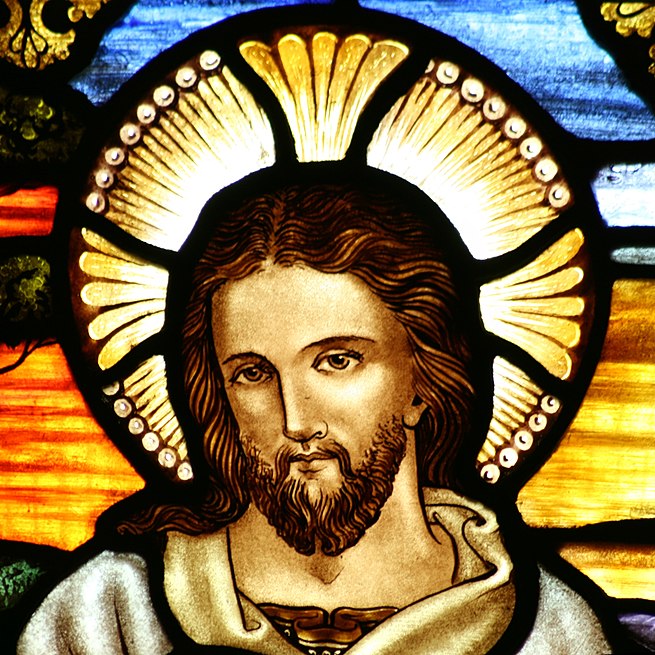
Main Difference
The main difference between Hinduism and Christianity is that the Hinduism is a religion and way of life and Christianity is a monotheistic religion founded in the first century, that claims Jesus being the son of God
-
Hinduism
Hinduism is an Indian religion and dharma, or way of life, widely practised in the Indian subcontinent and parts of Southeast Asia. Hinduism has been called the oldest religion in the world, and some practitioners and scholars refer to it as Sanātana Dharma, “the eternal tradition”, or the “eternal way”, beyond human history. Scholars regard Hinduism as a fusion or synthesis of various Indian cultures and traditions, with diverse roots and no founder. This “Hindu synthesis” started to develop between 500 BCE and 300 CE, after the end of the Vedic period (1500 BCE to 500 BCE), and flourished in the medieval period, with the decline of Buddhism in India.Although Hinduism contains a broad range of philosophies, it is linked by shared concepts, recognisable rituals, cosmology, shared textual resources, and pilgrimage to sacred sites. Hindu texts are classified into Śruti (“heard”) and Smṛti (“remembered”). These texts discuss theology, philosophy, mythology, Vedic yajna, Yoga, agamic rituals, and temple building, among other topics. Major scriptures include the Vedas and Upanishads, the Bhagavad Gita, and the Āgamas. Sources of authority and eternal truths in its texts play an important role, but there is also a strong Hindu tradition of questioning authority in order to deepen the understanding of these truths and to further develop the tradition.Prominent themes in Hindu beliefs include the four Puruṣārthas, the proper goals or aims of human life, namely Dharma (ethics/duties), Artha (prosperity/work), Kama (desires/passions) and Moksha (liberation/freedom from the cycle of death and rebirth/salvation); karma (action, intent and consequences), Saṃsāra (cycle of death and rebirth), and the various Yogas (paths or practices to attain moksha). Hindu practices include rituals such as puja (worship) and recitations, japa, meditation, family-oriented rites of passage, annual festivals, and occasional pilgrimages. Some Hindus leave their social world and material possessions, then engage in lifelong Sannyasa (monastic practices) to achieve Moksha. Hinduism prescribes the eternal duties, such as honesty, refraining from injuring living beings (ahimsa), patience, forbearance, self-restraint, and compassion, among others. The four largest denominations of Hinduism are the Vaishnavism, Shaivism, Shaktism and Smartism.Hinduism is the world’s third largest religion; its followers, known as Hindus, constitute about 1.15 billion, or 15–16% of the global population. Hinduism is the most widely professed faith in India, Nepal and Mauritius. It is also the predominant religion in Bali, Indonesia. Significant Hindu communities are also found in the Caribbean, Africa, North America, and other countries.
-
Christianity
Christianity is a universalising Abrahamic monotheistic religion based on the life, teachings, and miracles of Jesus of Nazareth, known by Christians as the Christ, or “Messiah”, who is the focal point of the Christian faiths. It is the world’s largest religion, with over 2.4 billion followers, or 33% of the global population, known as Christians. Christians make up a majority of the population in about two-thirds of the countries and territories in the world. They believe that Jesus is the Son of God and the savior of humanity whose coming as the Messiah (the Christ) was prophesied in the Old Testament. Christianity has played a prominent role in the shaping of Western civilization.
Christianity grew out of Judaism and began as a Second Temple Judaic sect in the mid-1st century. Originating in the Roman province of Judea, it quickly spread to Europe, Syria, Mesopotamia, Anatolia, Transcaucasia, Egypt, Ethiopia and the Indian subcontinent, and by the end of the 4th century had become the official state church of the Roman Empire. Following the Age of Discovery, Christianity spread to the Americas, Oceania, sub-Saharan Africa and the rest of the world through missionary work and colonization.
Christian theology is summarized in creeds such as the Apostles’ Creed and the Nicene Creed. These professions of faith state that Jesus suffered, died, was buried, descended into hell, and rose from the dead, in order to grant eternal life to those who believe in him and trust in him for the remission of their sins. The creeds further maintain that Jesus physically ascended into heaven, where he reigns with God the Father in the unity of the Holy Spirit, and that he will return to judge the living and the dead and grant eternal life to his followers. His incarnation, earthly ministry, crucifixion and resurrection are often referred to as “the gospel”, meaning “good news”. The term gospel also refers to written accounts of Jesus’ life and teaching, four of which—Matthew, Mark, Luke, and John—are considered canonical and included in the Christian Bible, as established by the 5th century for the ancient undivided Catholic and Eastern Orthodox traditions before the East–West Schism.
Throughout its history, Christianity has weathered schisms and theological disputes that have resulted in many distinct churches and denominations. Worldwide, the three largest branches of Christianity are the Catholic Church, the Eastern Orthodox Church and the various denominations of Protestantism. The Catholic and Eastern Orthodox churches broke communion with each other in the East–West Schism of 1054. Protestantism came into existence in the Protestant Reformation in the 16th century, splitting from the Catholic Church.
-
Hinduism (noun)
a major religious and cultural tradition of South Asia, which developed from Vedic religion.
